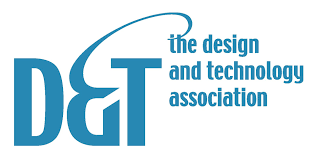Subject Leaders: Laura Rastall and Sarah Dalton
Design and Technology at Sydenham Primary School is about providing opportunities for children to develop their capability, combining their designing and making skills with knowledge and understanding in order to create quality products. Our aim is to develop children's skills and knowledge in design, structures, mechanisms, electrical control and a range of materials, including food. Design and Technology inspires children's creativity and encourages them to think about important real-life issues.
When planning and delivering our Desgn and Technology curriculum, each project addresses the six Design and Technology Principles:
-
User – who the products are for
-
Purpose – what tasks the products will perform
-
Functionality – how the products will work
-
Design Decisions – the opportunities children have to make choices
-
Innovation – the scope children have to be original with their thinking
-
Authenticity – how believable/real the products will be to the children
We teach a minimum of three Design and Technology projects per academic year in each class, including, Investigative and Evaluative Activities (IEAs), Focused Tasks (FTs) and a Design, Make and Evaluate Assignment (DMEA) as part of each project. Our Design and Technology curriculum covers:
-
Key Stage 1 – Food, Textiles, Structures and Mechanisms
-
Key Stage 2 – Food, Textiles, Structures, Mechanical Systems and Electrical Systems

We are partners with the Design and Technology Association. The D&T Lead is completing the self-review framework and working towards accreditation for the Design and Technology Mark. The D&T Lead receives regular continuing professional development via the D&T Association, and is supporting curriculum development with colleagues in partner schools across our consortium.
As part of our Food Technology D&T curriculum, we have an established alliance with the Royal Academy of Culinary Arts, and participate in their Adopt a School programme, whereby a professional chef regularly works with pupils so that they understand food provenance; sustainability; cooking and how to adopt healthy eating habits. Members of our staff are trained in Level 2 Food Safety to support our practice in D&T.
Reception staff have received training in woodwork, led by Pete Moorhouse, so that woodwork is part of continuous provision in EYFS and children regularly rehearse their skills and do making projects. A Teaching Assistant leads a weekly extra-curricular woodwork club. All staff have received INSET led by Paul Johnson on book-making, and children design and make books with moving parts (from simple mechanisms in KS1, building on this understanding in KS2) as one of their three design and make projects each year.
We follow the Design and Technology Association curriculum and Clickable Progression Framework.
 Rights Links: Article 29 – Goals of Education
Rights Links: Article 29 – Goals of Education
Our school has a partnership with LEGO  Education. Children benefit from working withLEGO Education resources, and engage in design and technology challenges in the LEGO Education Innovation Studio.
Education. Children benefit from working withLEGO Education resources, and engage in design and technology challenges in the LEGO Education Innovation Studio.
LEGO Education Innovation Studios are a total solution comprising of equipment, training, teaching resources and technical services. Specifically designed for open-ended challenges, LEGO® Education promotes problem solving through a hands-on approach.
Please click on the link below to see a series of case studies that we have developed on behalf of the Design and Technology Association that look at the impact that these creative LEGO Education Innovation Studios have had on learning. The case studies focus on the process of implementation and the impact that they have had.
Lego-Education-Innovation-Studio-Case-Study